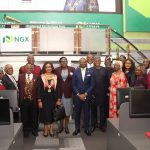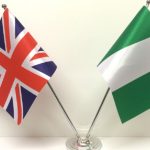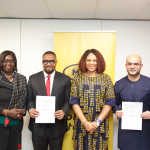World
Did Russia Extend Trade Preferences to Nigeria
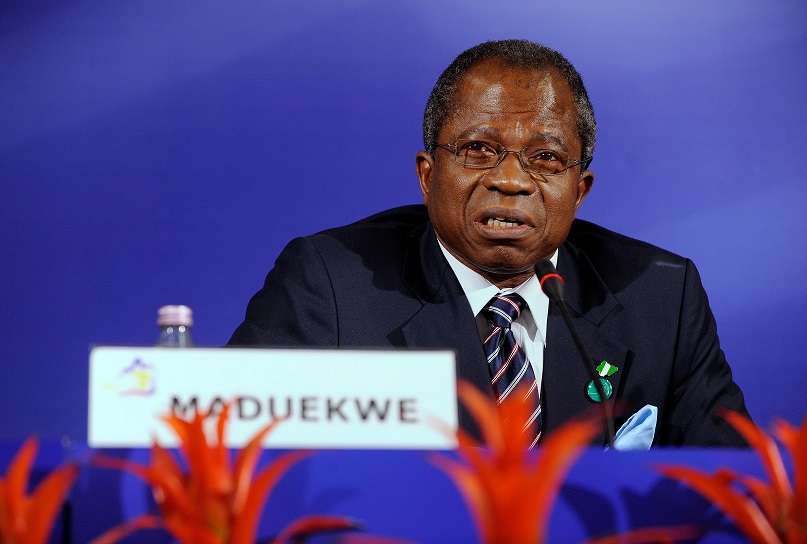
By Kestér Kenn Klomegâh
More than a decade ago, Russia’s Foreign Affairs Minister, Sergey Lavrov, held a review meeting with his Nigerian counterpart Minister, the late Mr Ojo Mbila Maduekwe, who paid a three-day working visit to Moscow. After the closed-door bilateral talks, both ministers held a brief media conference, and one of the significant questions raised there was Moscow was prepared to offer trade preferences to Nigeria.
Extending trade preferences was interpreted as an integral part of strengthening bilateral economic and trade cooperation between the two parties. During the Soviet days, Nigeria benefitted tremendously from Soviet assistance. And without a doubt, Russia has cordial post-Soviet relations with Nigeria.
Mr Maduekwe headed the delegation for the ‘business-as-usual’ intergovernmental commission on economic and scientific-technical cooperation on March 17. They agreed on a broad range of bilateral economic issues, many of which are still not implemented.
But then, Russia has never honoured its promise of extending trade preferences in practical terms to Nigeria. That media conference was held in March 2009.
Professor Dmitri Bondarenko, deputy director of the Russian Academy of Sciences’ Institute for African Studies, told Inter Press Service (IPS) interview that as cooperation between Nigeria and Russia was strengthening, Russia should seriously consider extending preferences to some goods from Nigeria to boost trade between the two oil producers further.
Bondarenko told IPS that the intergovernmental commission could become a tool for the revival of Russian-Nigerian economic cooperation.
This possibility is symbolised, albeit ambivalently, by the Ajeokuta plant, which could become the largest metal-producing plant in Africa. The building of the steel plant started in 1970 during the Soviet era. According to Bondarenko, it was “‘unfortunately stopped in the late 1980s due to problems on both ends.”
This has made the Ajeokuta project “a painful topic in discussions among Nigerian policy experts on Russian-Nigerian relations.”
For trade relations between Russia and Nigeria and other African states to improve appreciably, Bondarenko suggested that ‘”Russia gives some trade preferences to African countries – for example, tax exceptions or reduction among other measures. This can become an effective political step to strengthen relations with African countries.”
However, at least two points should be taken into account: firstly, such measures should only apply to specific goods so as not to discourage non-African partners. For example, if Russia gives preferences to African imports of pineapples and bananas, it would have to do the same with Latin American importers of the same goods for economic and political reasons.
Secondly, such preferences should apply to direct imports by African companies but not to trade mediated by Russian or third countries companies. The value of trade, having practically doubled in 2008 to about 300 million dollars, and the allowance for re-exports – more than one billion dollars – serve as an indicator of current growth.
Today, Nigeria is Russia’s second-largest trade partner among sub-Saharan African countries. Russian business circles show an ever greater interest in entering the promising market of that large country.
Dr Bashir Obasekola, a prominent Nigerian economist and the outgoing president-general of an organization representing the Nigerian community in Russia, told IPS that the trade current trade statistics of about $300 million seems peanuts given the potential of both countries and the size of their economies.
“The volume of trade should be in the billions of dollars, even without military hardware. One of the major hindrances to free trade and a significant increase in trade transactions between Nigeria and Russia is the lack of direct air flights,’” Obasekola said further. “This makes it more inconvenient and expensive for potential investors to travel easily to both countries. Besides, there are no adequate economic and social statistics available to potential Russian and Nigerian investors.”
He explained that Russian industries need raw materials, agricultural produce and other consumer goods that are cheaply available in Africa. Without special incentives, these things cannot easily get to the Russian market.
“Such measures as changing import-export tariff policies could encourage buyers and sellers in both countries to trade. Adequate legal protection should be made available for investors in both countries. The lack of legal mechanisms is sometimes being exploited by criminals in both countries,” he said and added that this led to fraud and the illegal seizure of properties and investments.
Apart from the differences in the level of economic development and climate, Russia and Nigeria are similar in several ways. Both countries have large populations with a variety of mineral resources. Nigeria and Russia are both suppliers of oil, and both play significant roles in regional and world affairs.
Both countries are emerging economies, although Russia is far ahead in economic development, a member of the Group of Eight industrialized countries (G-8), while Nigeria is aspiring to be part of the 20 most-developed economies by the year 2020.
The Russian private and public sectors could also play significant roles in the infrastructural development (energy, housing, roads and railways) of Nigeria, Obasekola said finally.
The two governments hoped that the commission would help them to actualize the existing rich potential that both Russia and Nigeria possess in the trade and economic field and in the sphere of large investment projects.
These would include projects related to the development of infrastructure; the ferrous and non-ferrous metals industry; electric power, including nuclear energy; and the extraction of hydrocarbon and other mineral raw materials.
“We agreed to speed up work on modernizing the legal base of our relations. A whole array of important draft documents are in the stage of elaboration, including an agreement on the encouragement and protection of investment,” Lavrov said after their official meeting.
Russian foreign ministry’s spokesperson, Andrey Nesterenko, said at the start of the diplomatic talks that, “economic and trade ties between Russia and Nigeria have been picking up in recent years, which is consistent with the two leaderships’ policy of taking the partnership to a new qualitative level.”
Nesterenko added that “key aspects of Russian-Nigerian cooperation are to bring all the available suggestions for large projects in the energy sphere, the ferrous and non-ferrous metals industry and other sectors onto a practical footing.”
World
Russian-Nigerian Economic Diplomacy: Ajeokuta Symbolises Russia’s Remarkable Achievement in Nigeria
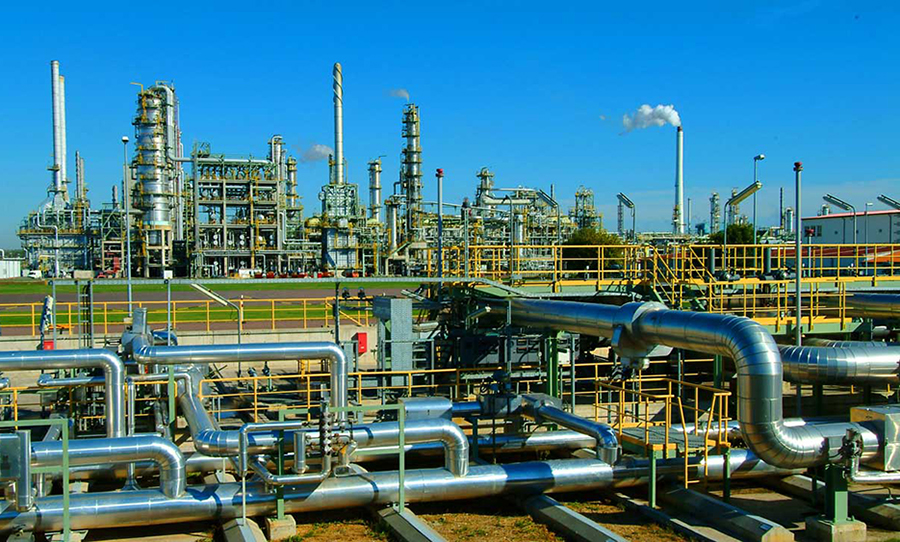
By Kestér Kenn Klomegâh
Over the past two decades, Russia’s economic influence in Africa—and specifically in Nigeria—has been limited, largely due to a lack of structured financial support from Russian policy banks and state-backed investment mechanisms. While Russian companies have demonstrated readiness to invest and compete with global players, they consistently cite insufficient government financial guarantees as a key constraint.
Unlike China, India, Japan, and the United States—which have provided billions in concessionary loans and credit lines to support African infrastructure, agriculture, manufacturing, and SMEs—Russia has struggled to translate diplomatic goodwill into substantial economic projects. For example, Nigeria’s trade with Russia accounts for barely 1% of total trade volume, while China and the U.S. dominate at over 15% and 10% respectively in the last decade. This disparity highlights the challenges Russia faces in converting agreements into actionable investment.
Lessons from Nigeria’s Past
The limited impact of Russian economic diplomacy echoes Nigeria’s own history of unfulfilled agreements during former President Olusegun Obasanjo’s administration. Over the past 20 years, ambitious energy, transport, and industrial initiatives signed with foreign partners—including Russia—often stalled or produced minimal results. In many cases, projects were approved in principle, but funding shortfalls, bureaucratic hurdles, and weak follow-through left them unimplemented. Nothing monumental emerged from these agreements, underscoring the importance of financial backing and sustained commitment.
China as a Model
Policy experts point to China’s systematic approach to African investments as a blueprint for Russia. Chinese state policy banks underwrite projects, de-risk investments, and provide finance often secured by African sovereign guarantees. This approach has enabled Chinese companies to execute large-scale infrastructure efficiently, expanding their presence across sectors while simultaneously investing in human capital.
Egyptian Professor Mohamed Chtatou at the International University of Rabat and Mohammed V University in Rabat, Morocco, argues: “Russia could replicate such mechanisms to ensure companies operate with financial backing and risk mitigation, rather than relying solely on bilateral agreements or political connections.”
Russia’s Current Footprint in Africa
Russia’s economic engagement in Africa is heavily tied to natural resources and military equipment. In Zimbabwe, platinum rights and diamond projects were exchanged for fuel or fighter jets. Nearly half of Russian arms exports to Africa are concentrated in countries like Nigeria, Zimbabwe, and Mozambique. Large-scale initiatives, such as the planned $10 billion nuclear plant in Zambia, have stalled due to a lack of Russian financial commitment, despite completed feasibility studies. Similar delays have affected nuclear projects in South Africa, Rwanda, and Egypt.
Federation Council Chairperson Valentina Matviyenko and Senator Igor Morozov have emphasized parliamentary diplomacy and the creation of new financial instruments, such as investment funds under the Russian Export Center, to provide structured support for businesses and enhance trade cooperation. These measures are designed to address historical gaps in financing and ensure that agreements lead to tangible outcomes.
Opportunities and Challenges
Analysts highlight a fundamental challenge: Russia’s limited incentives in Africa. While China invests to secure resources and export markets, Russia lacks comparable commercial drivers. Russian companies possess technological and industrial capabilities, but without sufficient financial support, large-scale projects remain aspirational rather than executable.
The historic Russia-Africa Summits in Sochi and in St. Petersburg explicitly indicate a renewed push to deepen engagement, particularly in the economic sectors. President Vladimir Putin has set a goal to raise Russia-Africa trade from $20 billion to $40 billion over the next few years. However, compared to Asian, European, and American investors, Russia still lags significantly. UNCTAD data shows that the top investors in Africa are the Netherlands, France, the UK, the United States, and China—countries that combine capital support with strategic deployment.
In Nigeria, agreements with Russian firms over energy and industrial projects have yielded little measurable progress. Over 20 years, major deals signed during Obasanjo’s administration and renewed under subsequent governments often stalled at the financing stage. The lesson is clear: political agreements alone are insufficient without structured investment and follow-through.
Strategic Recommendations
For Russia to expand its economic influence in Africa, analysts recommend:
- Structured financial support: Establishing state-backed credit lines, policy bank guarantees, and investment funds to reduce project risks.
- Incentive realignment: Identifying sectors where Russian expertise aligns with African needs, including energy, industrial technology, and infrastructure.
- Sustained implementation: Turning signed agreements into tangible projects with clear timelines and milestones, avoiding the pitfalls of unfulfilled past agreements.
With proper financial backing, Russia can leverage its technological capabilities to diversify beyond arms sales and resource-linked deals, enhancing trade, industrial, and technological cooperation across Africa.
Conclusion
Russia’s Africa strategy remains a work in progress. Nigeria’s experience with decades of agreements that failed to materialize underscores the importance of structured financial commitments and persistent follow-through. Without these, Russia risks remaining a peripheral player (virtual investor) while Arab States such as UAE, China, the United States, and other global powers consolidate their presence.
The potential is evident: Africa is a fast-growing market with vast natural resources, infrastructure needs, and a young, ambitious population. Russia’s challenge—and opportunity—is to match diplomatic efforts with financial strategy, turning political ties into lasting economic influence.
World
Afreximbank Warns African Governments On Deep Split in Global Commodities
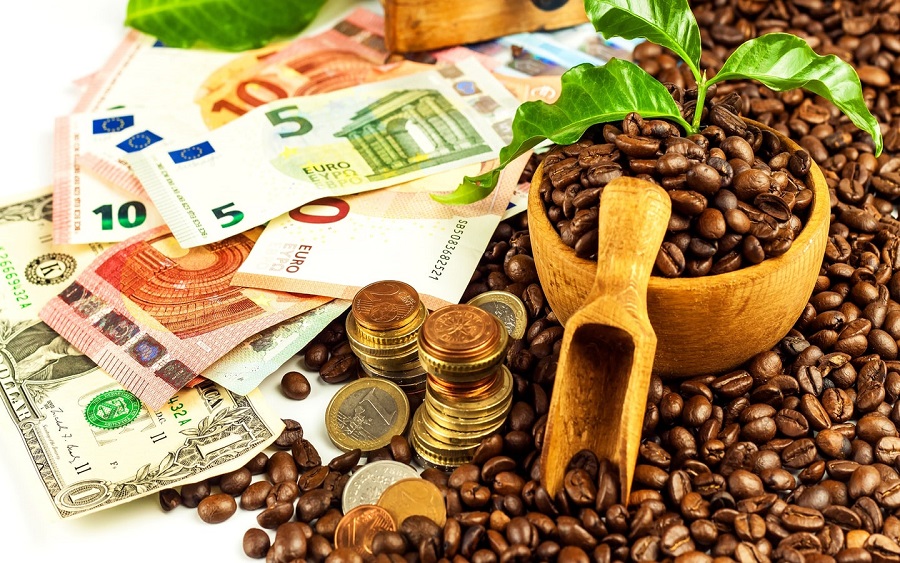
By Adedapo Adesanya
Africa Export-Import Bank (Afreximbank) has urged African governments to lean into structural tailwinds, warning that the global commodity landscape has entered a new phase of deepening split.
In its November 2025 commodity bulletin, the bank noted that markets are no longer moving in unison; instead, some are powered by structural demand while others are weakening under oversupply, shifting consumption patterns and weather-related dynamics.
As a result of this bifurcation, the Cairo-based lender tasked policymakers on the continent to manage supply-chain vulnerabilities and diversify beyond the commodity-export model.
The report highlights that commodities linked to energy transition, infrastructure development and geopolitical realignments are gaining momentum.
For instance, natural gas has risen sharply from 2024 levels, supported by colder-season heating needs, export disruptions around the Red Sea and tightening global supply. Lithium continues to surge on strong demand from electric-vehicle and battery-storage sectors, with growth projections of up to 45 per cent in 2026. Aluminium is approaching multi-year highs amid strong construction and automotive activity and smelter-level power constraints, while soybeans are benefiting from sustained Chinese purchases and adverse weather concerns in South America.
Even crude oil, which accounts for Nigeria’s highest foreign exchange earnings, though still lower year-on-year, is stabilising around $60 per barrel as geopolitical supply risks, including drone attacks on Russian facilities, offset muted global demand.
In contrast, several commodities that recently experienced strong rallies are now softening.
The bank noted that cocoa prices are retreating from record highs as West African crop prospects improve and inventories recover. Palm oil markets face oversupply in Southeast Asia and subdued demand from India and China, pushing stocks to multi-year highs. Sugar is weakening under expectations of a nearly two-million-tonne global surplus for the 2025/26 season, while platinum and silver are seeing headwinds from weaker industrial demand, investor profit-taking and hawkish monetary signals.
For Africa, the bank stresses that the implications are clear. Countries aligned with energy-transition metals and infrastructure-linked commodities stand to benefit from more resilient long-term demand.
It urged those heavily exposed to softening agricultural markets to accelerate a shift into processing, value addition and product diversification.
The bulletin also called for stronger market-intelligence systems, improved intra-African trade connectivity, and investment in logistics and regulatory capacity, noting that Africa’s competitiveness will depend on how quickly governments adapt to the new two-speed global environment.
World
Aduna, Comviva to Accelerate Network APIs Monetization

By Modupe Gbadeyanka
A strategic partnership designed to accelerate worldwide enterprise adoption and monetisation of Network APIs has been entered into between Comviva and the global aggregator of standardised network APIs, Aduna.
The adoption would be done through Comviva’s flagship SaaS-based platform for programmable communications and network intelligence, NGAGE.ai.
The partnership combines Comviva’s NGAGE.ai platform and enterprise onboarding expertise with Aduna’s global operator consortium.
This unified approach provides enterprises with secure, scalable access to network intelligence while enabling telcos to monetise network capabilities efficiently.
The collaboration is further strengthened by Comviva’s proven leadership in the global digital payments and digital lending ecosystem— sectors that will be among the biggest adopters of Network APIs.
The NGAGE.ai platform is already active across 40+ countries, integrated with 100+ operators, and processing over 250 billion transactions annually for more than 7,000 enterprise customers. With its extensive global deployment, NGAGE.ai is positioned as one of the most scalable and trusted platforms for API-led network intelligence adoption.
“As enterprises accelerate their shift toward real-time, intelligence-driven operations, Network APIs will become foundational to digital transformation. With NGAGE.ai and Aduna’s global ecosystem, we are creating a unified and scalable pathway for enterprises to adopt programmable communications at speed and at scale.
“This partnership strengthens our commitment to helping telcos monetise network intelligence while enabling enterprises to build differentiated, secure, and future-ready digital experiences,” the chief executive of Comviva, Mr Rajesh Chandiramani, stated.
Also, the chief executive of Aduna, Mr Anthony Bartolo, noted that, “The next wave of enterprise innovation will be powered by seamless access to network intelligence.
“By integrating Comviva’s NGAGE.ai platform with Aduna’s global federation of operators, we are enabling enterprises to innovate consistently across markets with standardised, high-performance Network APIs.
“This collaboration enhances the value chain for operators and gives enterprises the confidence and agility needed to launch new services, reduce fraud, and deliver more trustworthy customer experiences worldwide.”
-

 Feature/OPED6 years ago
Feature/OPED6 years agoDavos was Different this year
-
Travel/Tourism9 years ago
Lagos Seals Western Lodge Hotel In Ikorodu
-

 Showbiz3 years ago
Showbiz3 years agoEstranged Lover Releases Videos of Empress Njamah Bathing
-

 Banking7 years ago
Banking7 years agoSort Codes of GTBank Branches in Nigeria
-

 Economy3 years ago
Economy3 years agoSubsidy Removal: CNG at N130 Per Litre Cheaper Than Petrol—IPMAN
-

 Banking3 years ago
Banking3 years agoFirst Bank Announces Planned Downtime
-

 Banking3 years ago
Banking3 years agoSort Codes of UBA Branches in Nigeria
-

 Sports3 years ago
Sports3 years agoHighest Paid Nigerian Footballer – How Much Do Nigerian Footballers Earn




